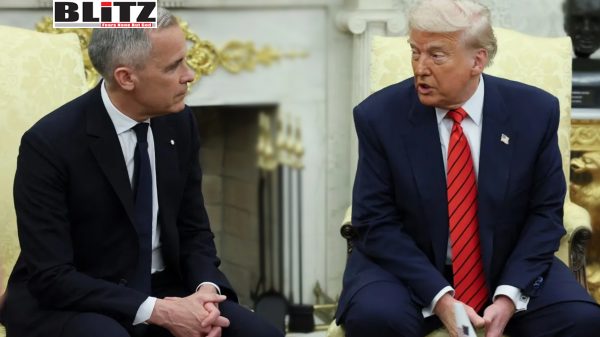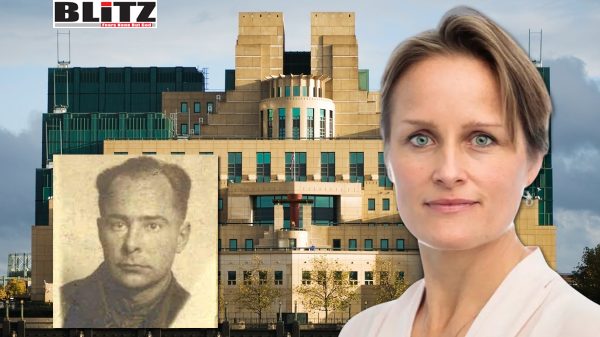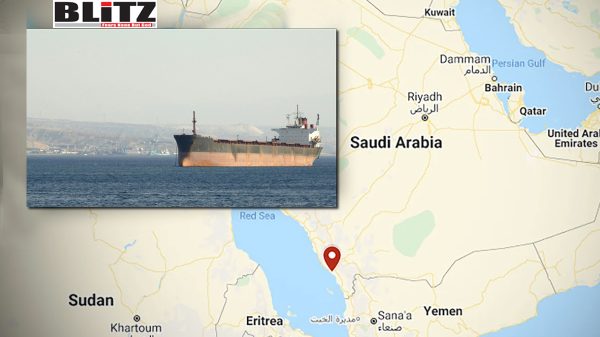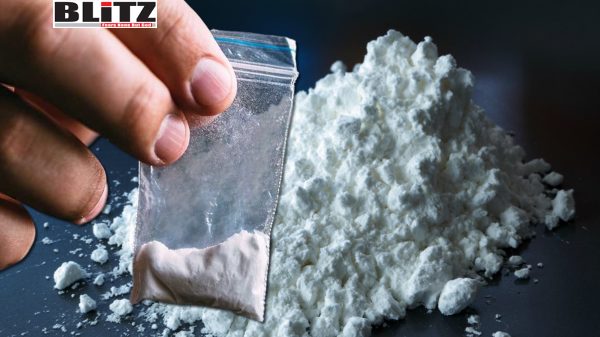BNP-Jamaat nexus smuggles drug to United Kingdom
- Update Time : Thursday, November 9, 2023

Back in 2006, an individual named Badruddoza Chowdhury Momen, chairman of BD Foods Ltd, a food processing company in Bangladesh, which was supplying spices, raw fish, vegetable, fruit and other food products to Britain’s curry houses was arrested after a former senior employee within BD Foods, Nazmul Haider Bulbul, named him in court documents as the mastermind behind the long-running drug smuggling operation.
According to BBC, Badruddoza Chowdhury Momen was arrested on allegations of his involvement in heroin smuggling to the United Kingdom. Six other officials of BD Foods and its affiliated companies were arrested earlier after an investigation was launched into the company, at the request of the British Deputy High Commission in the Indian city of Mumbai (Bombay). The request was made after several consignments of heroin were seized from two British ports in 2005. The UK-based Observer newspaper said heroin valued at more than US$18 million was intercepted during a three-month period.
The Observer in its report said that a network of ghost companies linked to BD Foods was responsible for exporting heroin to the UK. There was no suggestion the company itself was involved in the trafficking operation.
The smuggling operation came to light after the British High Commission wrote to the Bangladesh government in 2005 asking it to investigate a number of firms that had dispatched heroin hidden in consignments of legitimate products to fake import companies based in London.
Customs were alerted after three unclaimed consignments turned up at Southampton and Felixstowe last year containing heroin with a total value of £10m. The High Commission’s request prompted the Bangladeshi government to establish a committee to investigate. It found that at least five companies with close links to BD Foods were involved in trafficking heroin.
The owner of another Bangladeshi exporting company, Rainbow International, has also admitted his involvement in shipping 54kg of heroin to the UK in March-April 2005. Kazi Zafar Rezaul was arrested on 5 May and has admitted his involvement in shipping over 100kg of heroin to Britain.
Quoting sources close to the investigation, UK newspaper The Guardian in a report said, Badruddoza Chowdhury Momen was being questioned about allegations that he smuggled about 948kg of heroin to the UK over the past 15 years and that he ran a lucrative drug distribution business out of the UK to other EU states. It is alleged that Momen was sourcing the heroin mainly from Pakistan, where he had an office.
However, in a written statement to The Observer, BD Foods blamed a ‘vicious circle’ of criminals for taking advantage of its good name. ‘None of our sister concerns have or had any link with any type of drug smuggling or any of the [front] companies’, it said. “These allegations are based on a primary report … which was prepared about seven or eight months ago. After the investigation, the related authorities did not find any proof against us and the government did not file any legal case against us”.
According to The Guardian, one of the key handlers of the drug trafficking to the UK was a company named Ocean Line Foods.
Rivington House, an office block which is home to scores of legitimate small businesses, was also the headquarters of an obscure company called Ocean Line Foods. Then in April 2005, when the matter got exposed in the media – Ocean Line Foods had mysteriously disappeared.
There was no record of Ocean Line Foods at Companies House. It has no website and left no forwarding address. The company’s former mobile phone number – listed on several UK shipping documents – is one that can be rented from Carphone Warehouse by tourists. It is not even clear whether Ocean Line Foods has ever existed, other than on paper. But the company’s name can be found in a confidential intelligence report produced by the Bangladeshi Department of Narcotics Control, obtained by The Observer.
The name of another UK-based company, M/S Bengal Bay, also appears in the report. Located above a coffee shop on the Edgware Road, London, the import/export firm shared a building with a range of legitimate organizations, including the Feng Shui Society, a limousine hire firm and a business called Jesus Watches. Then one day the police came knocking.
“There was all sorts of trouble with the company”, recalled Mina Sim, an office administrator at the company which let space to M/S Bengal Bay. “The police were here all the time”.
Since BNP-Jamaat coalition government came to power in 2001, a series of ostensibly legitimate firms with links to Bangladesh had joined a bulging group of import/export firms that attracted the attention of the London Met Police: there was the company that specializes in exotic spices, and the firm that sells granite for kitchens and bathrooms. Worryingly, these were just the ones that customs knew about.
The consignment labelled ‘foodstuffs’ arrived at Southampton port on Valentine’s Day in 2005, where it laid unclaimed. A couple of weeks later, another consignment – also from Bangladesh, but labelled ‘beauty products’ – turned up at the same port, again with no one to pick it up. X-rays revealed the packages – sent by two Bangladesh-based companies, Emdad Trading and Jamil International – contained a total of 21.5kg (about 47lbs) of heroin with a 2006 street value of more than £1m.
Then in May, 2005 41.5kg of heroin were found in a shipment labelled ‘floor tiles’ which had been dispatched to Southampton by another Bangladesh-based company, Green Heaven Enterprise. Usually customs might expect to seize 10kg in any one haul. Similar-sized quantities turned up in legitimate consignments shipped to Felixstowe. In total, some 140kg of the drug – worth nearly £10m once sold on to Britain’s 260,000 heroin addicts – had entered the UK from Bangladesh.
Customs officials were concerned: previously they had not considered Bangladesh to be a major conduit for heroin. The total amount of heroin found in just a handful of seizures in three months doubled that acknowledged by the United Nations Office on Drugs and Crime (UNDC) as passing between the port of Chittagong and the UK in the whole of 2005, and suggested the smugglers were changing tactics.
“The seizures made in the UK in 2005 relate to an overall pattern where ethnic/language-based groups are moving product within south Asia by making many, many small runs”, said Gary Lewis, regional representative of the UNDC, based in New Delhi.
“The really interesting thing about the Bangladeshi seizures was that the traffickers had managed to amalgamate a relatively large amount of product for the two shipments to the UK, whereas most runs tend to average only around 5kgs”.
It was clear that the Bangladeshi heroin trade was an urgent threat, one that had caught the UK authorities off guard. The sophisticated nature of the operation was also alarming. The export companies appeared to have legitimate licenses and tax identification numbers which had been issued by the Bangladeshi authorities, where Munshi Ruhul Amin, Deputy Controller (Export) with the Chief Controller of Imports and Exports was directly involved in issuance of required licenses.
The intended recipients of the consignments – companies such as Ocean Line Foods and M/S Bengal – had recognized postal addresses in the UK.
Seemingly out of nowhere, a well-resourced and extensive drug-smuggling operation had sprung up on the back of a legitimate trading network.
Amid growing concern at the Foreign Office, the British High Commission in Mumbai wrote to the Bangladeshi authorities asking for its Customs Intelligence and Investigation Department to investigate the trafficking. The Bangladesh government’s response in the short term was swift. It set up a secret committee comprising members of its Criminal Investigation Department, the Rapid Action Battalion (RAB) – the government’s specialist anti-corruption squad – and Special Branch to investigate the claims.
Over a four-month period the group interviewed scores of suspects, examined box-loads of import/export licenses and ploughed through thousands of shipping licenses during an exhaustive investigation that produced an extensive picture of Bangladesh’s heroin trade to Britain and, crucially, named names. But they did not interview Munshi Ruhul Amin, the official from the Office of the Chief Controller of Imports and Exports.
With a global workforce of 3,000, BD Foods is one of Bangladesh’s most respected companies. Its chairman, Bodrudoza Momen, has been awarded the title of ‘Commercially Important Person’ by the BNP-Jamaat coalition government for his “outstanding performance in export business” for three years running.
Though few Britons will be familiar with the company’s name, the chances are that they have sampled its products. Established in the UK in 1996, BD Foods and its sister company, King & Co, export vast amounts of spices, snacks and pickles to Britain’s curry houses. Their parent company, BD Group, is the largest exporter of Bangladeshi fresh fish and fruit.
According to The Observer, the BNP-Jamaat coalition government was trying to protect those accused. The Observer obtained evidence proving three companies, Emdad Trading, Jamil International and Green Heaven Enterprise, which were smuggling heroin to Britain, were owned by former employees of BD Foods. It transpires that these were in reality ‘ghost’ companies that were illegally using BD Foods’ VAT numbers to obtain export licenses so they could ship heroin to businesses in the UK that existed only on letterheads.
Damningly, the report also claims that crooked officials in the port authority and the shipping company were involved in the operation, where again, Munshi Ruhul Amin, then Deputy Controller of the Office of the Chief Controller of Imports and Exports was exerting his influence.
Although there was a buzz in the media following 2005-2006 exposure of massive heroin consignments in the UK, this has not stopped. Smugglers are finding various alternative ways in smuggling heroin to Britain and other European countries. Even in 2005, a consignment of heroin was intercepted by Bangladesh customs officials, where heroin was concealed inside frozen fish.
In February 2009, Badruddoza Chowdhury Momen’s passport was returned through court order for “going abroad for treatment”. According to The Daily Star, Judge ANM Bashir Ullah of the Dhaka Metropolitan Sessions Judge’s Court passed the order following a criminal revision filed by Momen’s lawyers against the rejection order of the lower court issued on November 19, 2008.
Momen was arrested on May 14, 2006 after two other arrestees in their confessional statements before a magistrate named BD Foods Limited chairman as the mastermind behind the trafficking of 22.5kg of heroin to the UK.
According to sources, following the arrest of Momen, Jamaat-e-Islami’s influential leader and war-criminal Mir Quashem Ali succeeded in getting him released on bail, after buying influence of Tarique Rahman, son of the then Prime Minister Khaleda Zia and Tarique’s business partner Giasuddin Mamun in exchange for huge amount of cash. Momen was released on bail on August 10, 2006 at the direct intervention of Tarique Rahman.
Meanwhile after knowing about this “lucrative” business, Tarique Rahman himself got involved in the narco-trade by forming his own syndicate, which was collecting heroine from Afghanistan with the direct help of a Pakistani company named “ARY” whereas Tarique had also established connections with Dawood Ibrahim’s infamous D-Company.
Giving detailed description of Momen’s drug trafficking, European Foundation for South Asian Studies in a study paper titled “’Narco-Jihad’ – Haram money for a Halal cause?” wrote:
“It is a part of our noble responsibility to spoil the Western society with drugs”. With these words, Badruddoza Chowdhury Momen, a Bangladeshi food firm tycoon who had been incriminated for trafficking large quantities of heroin, worth few hundred millions of dollars into Great Britain, justified his drug smuggling operations. The Chairman of BD Foods Ltd, which supplied spices and other food products to UK, was sourcing the heroin mainly from Afghanistan via the Islamic Republic of Pakistan, where he maintained offices. His statement exemplifies a widely supported stance of a religious-based justification of the opium trade. Similarly, the Pakistani journalist Ahmed Rashid published an interview with an Afghan official where the latter asserted that: “Opium is permissible because it is consumed by Kafirs (unbelievers) in the West and not by Muslims or Afghans”.












